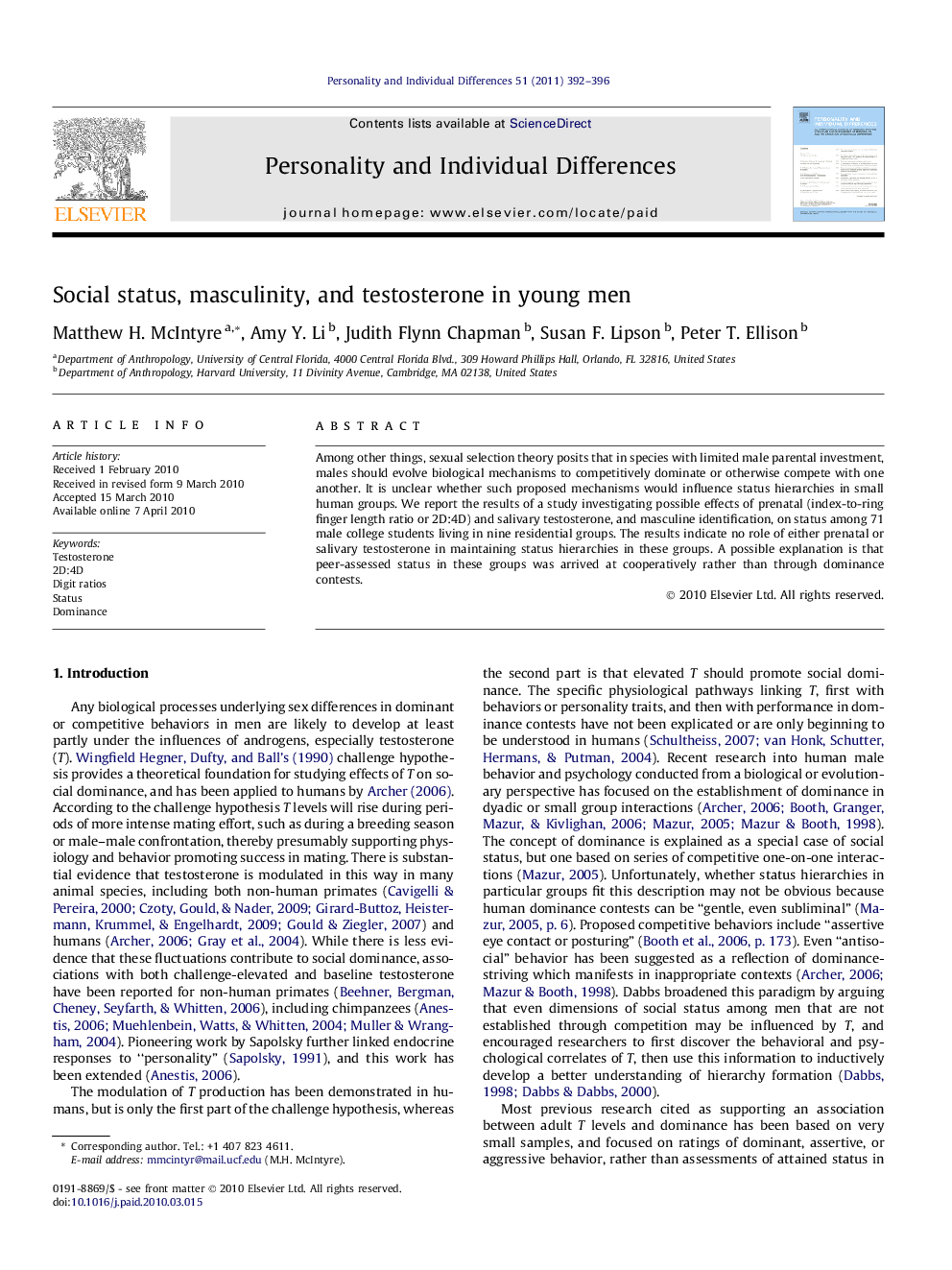| Article ID | Journal | Published Year | Pages | File Type |
|---|---|---|---|---|
| 891485 | Personality and Individual Differences | 2011 | 5 Pages |
Among other things, sexual selection theory posits that in species with limited male parental investment, males should evolve biological mechanisms to competitively dominate or otherwise compete with one another. It is unclear whether such proposed mechanisms would influence status hierarchies in small human groups. We report the results of a study investigating possible effects of prenatal (index-to-ring finger length ratio or 2D:4D) and salivary testosterone, and masculine identification, on status among 71 male college students living in nine residential groups. The results indicate no role of either prenatal or salivary testosterone in maintaining status hierarchies in these groups. A possible explanation is that peer-assessed status in these groups was arrived at cooperatively rather than through dominance contests.
